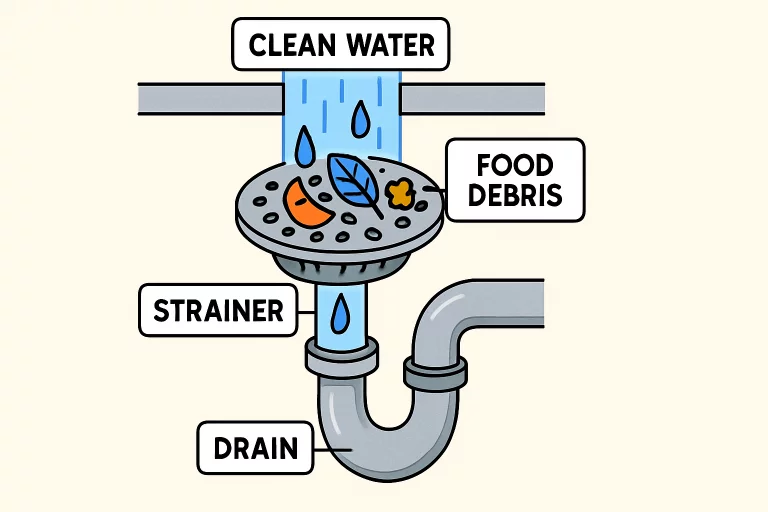Introduction: Prevention of Drain Problems
Maintaining clean and functional drains is a critical yet often overlooked aspect of home care that directly impacts the overall health, safety, and comfort of your living environment. Drains are responsible for efficiently carrying away wastewater, and when they become blocked, the resulting inconvenience can quickly escalate into serious plumbing complications. Blocked drains not only cause unsightly backups and lingering foul odors but can also lead to water damage, the growth of mold and bacteria, and even costly repairs involving pipe replacements or extensive cleaning. Taking a proactive approach to drain maintenance provides homeowners with peace of mind, helps prevent emergencies, and promotes a sanitary household. When you need additional support, regular Dayton drain cleaning services provided by trusted professionals offer invaluable ongoing care, help catch early warning signs, and ensure your plumbing system is optimized for long-term durability.
Many common drainage problems stem from day-to-day habits that, over time, can lead to stubborn clogs and plumbing inefficiencies. However, with just a bit of awareness and the adoption of simple routines, you can significantly minimize your risk of drainage issues. Educating everyone in your household about proper usage and incorporating preventive care into your regular home maintenance schedule saves both time and money down the road. Ultimately, these small changes translate into fewer plumbing emergencies, less stress, and healthy, trouble-free pipes that serve your household reliably for years to come.
Proper Waste Disposal
Drain clogs often result from poor waste disposal habits, often due to a lack of awareness about what should and shouldn’t go down the drain. Proper disposal of everyday materials is crucial to prevent blockages. Greasy substances, such as oils and fats, can congeal as they cool, forming obstructions in the drainage system. To avoid this, pour used oils into a heat-resistant container, solidify them, and dispose of the solidified waste in the trash. Food scraps, such as rice, pasta, coffee grounds, eggshells, and fibrous vegetable peels, should be scraped directly into the compost bin or trash. Avoid pouring grease and oils down the drain, as they can solidify and clog pipes. Dispose of food scraps correctly, using strainers over the disposer and never grinding thick, starchy, or stringy foods. Be wary of bathroom waste, such as cotton swabs, paper towels, dental floss, wipes, and feminine hygiene products, which can obstruct pipes.
Installing Drain Strainers
Installing strainers on drains in your home can significantly reduce the risk of drain clogs. These small covers catch debris that would otherwise accumulate in pipes, preventing stray food particles from entering the system. In bathrooms, they act as barriers against hair, soap residue, and other residues that cause slow drainage. To maintain the strainers, clean them regularly, either after heavy use or after a few days of use. This preventative measure minimizes pipe buildup and can save on emergency calls for drain clearing.

Regular Drain Cleaning
Regular drain cleaning is essential to prevent minor buildup from forming into full blockages. Natural cleaning methods, such as using baking soda and vinegar, are effective and safer alternatives to harsh chemical options. This chemical-free method dissolves greasy deposits, flushes away minor blockages, and neutralizes odors. It is an environmentally conscious way to maintain fresh-smelling, free-flowing drains without pipe damage. A hot water flush is also recommended every week or two to soften and clear away fatty residues before they harden to cause blockages. Regular cleaning reduces the chance of stubborn clogs requiring costly tools or professional removal, and keeps your home’s plumbing running efficiently.
Professional Inspections
Regular professional plumbing inspections are crucial for identifying hidden leaks, slow drains, invasive tree roots, corrosion, and incipient blockages before they become emergencies. These inspections are especially important for older homes or those with extensive landscaping that may encroach on underground pipes. Scheduled inspections should be done annually or whenever persistent slow draining, recurring clogs, unexplained gurgling noises, or unusual odors are observed. These inspections can be scheduled before buying or selling a home to assess the performance of the plumbing system and avoid costly problems. Professional drain cleaning and inspection services go beyond DIY maintenance, preventing major repairs and disruptions and ensuring compliance with local codes and standards. By incorporating routine drain cleaning into your home care regimen, homeowners can protect their property from the aggravation and expense associated with clogged drains.

